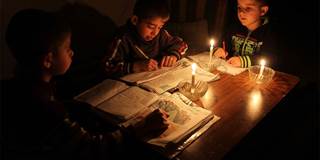It is time for the UN and other international bodies to move beyond a singular focus on enrollment numbers and grapple with the problem of quality in education. A child’s potential is truly unleashed only when he or she learns to spot and seize the opportunities his or her parents never had.
DHAKA – As the World Education Forum meets in Incheon, South Korea, it is time to confront some unsettling facts about the state of education in the world today. More than 91% of children of primary school age are now enrolled in school, but progress on educating the remaining 9% has slowed to a near standstill. The numbers have barely moved since 2005, and girls are still disproportionately left behind.

DHAKA – As the World Education Forum meets in Incheon, South Korea, it is time to confront some unsettling facts about the state of education in the world today. More than 91% of children of primary school age are now enrolled in school, but progress on educating the remaining 9% has slowed to a near standstill. The numbers have barely moved since 2005, and girls are still disproportionately left behind.